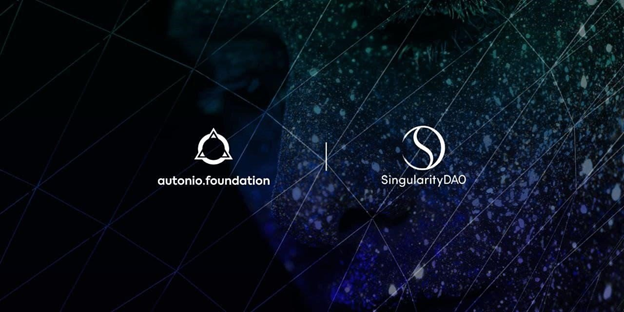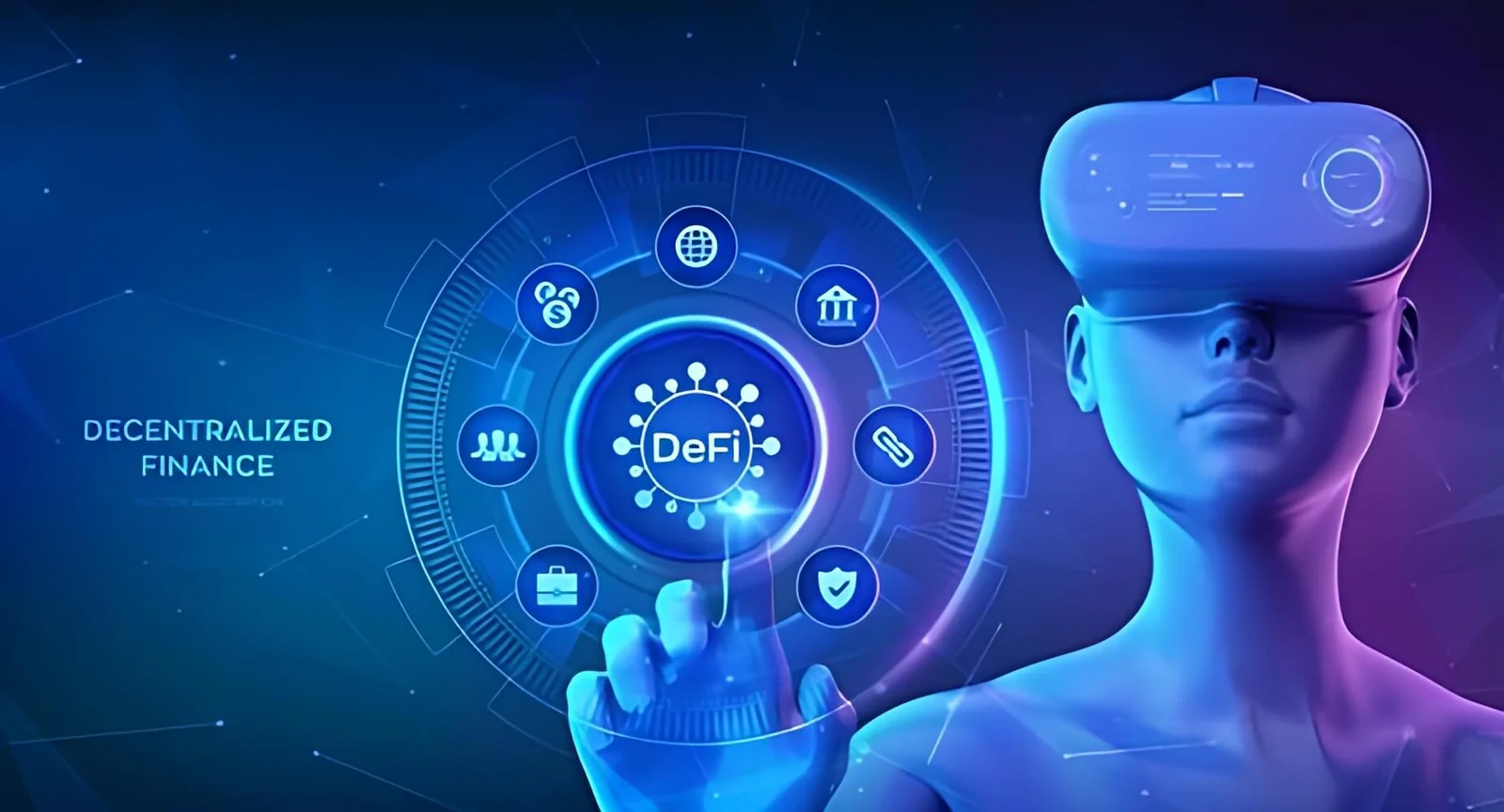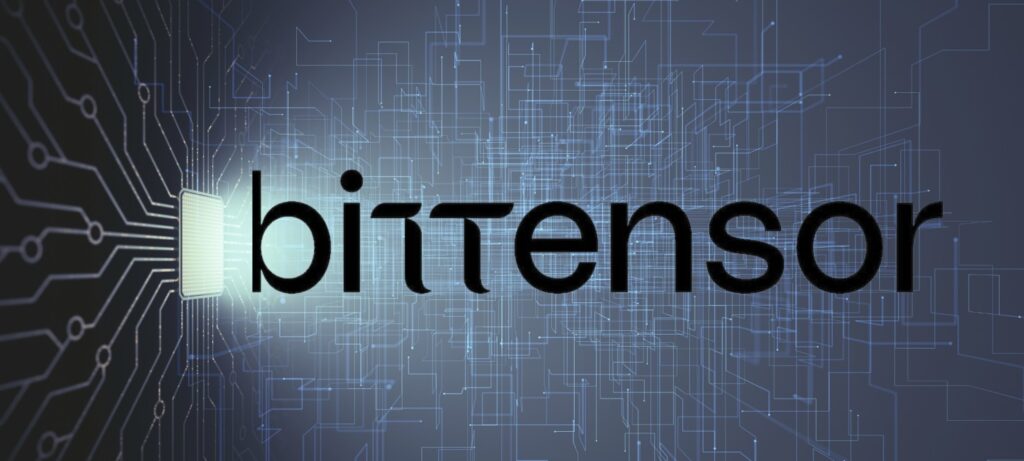Artificial Intelligence (AI) has gone from being a simple technological trend to becoming a crucial tool that is transforming industries globally. In the cryptocurrency, blockchain and DeFi (decentralized finance) sectors, AI has established itself as a driver of innovation, offering solutions that improve efficiency and precision in decision-making, as well as the way information is analyzed and used.
The amount of data generated in the DeFi ecosystem is immense and growing exponentially. According to information from DeFiLlama , the total value locked (TVL) in DeFi protocols reached more than $50 billion in 2023, and with it, the amount of data associated with transactions, liquidity, and market behavior has also increased.
Given this scenario, AI is presented as the ideal tool to process and analyze this data quickly and effectively. Through Machine Learning algorithms, patterns and trends can be identified in real time, something that would be practically impossible for the human eye.
Dune Analytics and Nansen already use AI for detailed on-chain analytics, providing insights into large whale portfolios and market trends.
In fact, tools like DeFiLlama , which is widely used to track the TVL of various DeFi platforms, can be integrated with AI plugins to offer deeper analytics, helping investors identify opportunities in liquidity pools that offer higher returns and better manage the risk of exposure to volatile assets.
Trading in DeFi is a process that can be very complex and volatile due to the high price fluctuation and speed at which transactions occur. AI has revolutionized this field by introducing automated trading strategies that adapt and learn from market changes in real-time.
Trading bots, such as those offered by Auton.io , are capable of executing transactions in milliseconds, allowing them to take advantage of arbitrage opportunities and minimize losses in the face of volatility.
AI-based trading models have demonstrated their ability to outperform traditional strategies. For example, a study titled “ Optimization of Traditional Stock Market Strategies Using the LSTM Hybrid Approach ” found that strategies incorporating Long Short-term Memory (LSTM) models outperform traditional strategies, providing a significant advantage in market prediction and trading decision making.
Additionally, another Telescopia report highlights how AI-based predictive trading models can analyze large amounts of data and employ high-frequency trading algorithms to achieve higher returns on investment, outperforming traditional methods.
This shows that AI-based trading strategies offer a competitive advantage by better adapting to market changes and improving decision-making efficiency.
In the realm of Dollar-Cost Averaging ( DCA ) strategies , AI also plays a key role by automatically adjusting periodic asset purchases based on market trends. This helps investors mitigate the impact of volatility and optimize their long-term returns, even in bear markets.

Una de las preocupaciones más grandes en el ecosistema DeFi es el riesgo asociado a la inversión. Con la creciente cantidad de ataques y exploits en protocolos DeFi, que han causado pérdidas por valor de más de $3.5 mil millones en 2022 según Cointelegraph, la gestión de riesgos se ha vuelto una prioridad para inversores y desarrolladores.
La IA ofrece herramientas de gestión de riesgos que analizan variables como la volatilidad del mercado, cambios regulatorios y comportamientos de los usuarios.
Por ejemplo según un informe de Ledger Works, una empresa especializada en soluciones de gestión de riesgos y análisis de datos para el sector blockchain y DeFi, la IA y el machine learning se están utilizando para la gestión de riesgos en DeFi. Sus modelos de inferencia permiten analizar datos en tiempo real, tanto on-chain como off-chain, y aplican técnicas como la simulación de Monte Carlo para optimizar tarifas en DEXs y ajustar dinámicamente los fees de los proveedores de liquidez, ayudando a gestionar riesgos y maximizar los retornos.
Estos modelos también se aplican a la seguridad de las pools de liquidez, donde la IA puede monitorizar la actividad en tiempo real, detectar comportamientos anómalos y prevenir posibles ataques o exploits. Esto contribuye a un entorno más seguro para quienes participan en el suministro de liquidez o realizan transacciones en protocolos DeFi.
La IA se está utilizando para auditar y optimizar la ejecución de smart contracts. Herramientas como análisis de lenguaje natural (NLP) pueden revisar documentación y reportes de auditoría para identificar errores comunes de codificación antes del despliegue de un smart contract, como los desbordamientos de buffer y problemas de reentrada. Además, la IA puede optimizar la ejecución de smart contracts, lo que permite transacciones más eficientes en aplicaciones descentralizadas.
Herramientas como ConsenSys Diligence ofrecen soluciones avanzadas para analizar el código de los smart contracts y detectar posibles vulnerabilidades antes de su implementación en la blockchain. Aunque no se basan en IA, utilizan técnicas de análisis estático y dinámico, junto con fuzzing, para identificar y corregir problemas de seguridad, lo que reduce significativamente el riesgo de fallos y fraudes, brindando un entorno más seguro para los usuarios de DeFi.

La sinergia entre la IA y el mundo cripto ha dado lugar a la creación de varias plataformas que ofrecen soluciones innovadoras. A continuación, presentamos algunos ejemplos destacados:
Es un fondo de cobertura descentralizado que utiliza la IA y la tecnología blockchain para hacer predicciones sobre el mercado financiero. Numerai permite a los científicos de datos de todo el mundo participar enviando sus modelos predictivos, y a cambio, son recompensados con el token nativo NMR. Esto fomenta la creación de modelos de IA de alta calidad que ayudan a mejorar la precisión en las decisiones de inversión del fondo.
Se trata de una plataforma de mercado descentralizada que permite a los desarrolladores comprar y vender servicios de IA utilizando la tecnología blockchain. Los servicios disponibles incluyen desde algoritmos de análisis de datos hasta modelos de procesamiento de lenguaje natural. SingularityNET está impulsando la democratización de la IA, permitiendo que empresas y particulares accedan a soluciones de IA de manera más sencilla y transparente mediante el uso del token AGIX.
Es una plataforma que ofrece herramientas de trading automatizado basadas en IA para inversores en criptomonedas. Auton.io proporciona bots de trading que utilizan algoritmos de IA para analizar los mercados y ejecutar operaciones de forma automática, aprovechando las oportunidades de trading de manera más efectiva. Los usuarios pueden personalizar sus estrategias y utilizar el token NIOX para acceder a funciones premium dentro de la plataforma.
Esta plataforma utiliza la tecnología blockchain para crear un ecosistema de agentes autónomos impulsados por IA que pueden realizar tareas complejas en nombre de los usuarios. Estos agentes pueden recopilar y analizar datos del mercado, realizar transacciones y optimizar procesos de trading en DeFi. Fetch.ai está diseñado para mejorar la eficiencia de las operaciones en múltiples sectores, incluyendo la logística, la energía y, por supuesto, las finanzas descentralizadas, utilizando el token FET como medio de intercambio dentro de la red.
Es una red descentralizada que combina la inteligencia artificial y la tecnología blockchain, permitiendo a los desarrolladores y participantes entrenar y compartir modelos de IA de manera colaborativa. Bittensor utiliza un mecanismo de incentivos basado en el token TAO, que recompensa a los usuarios que contribuyen con recursos computacionales y conocimiento a la red.

Para entender mejor el impacto y las diferencias del uso de la IA en el mundo de las criptomonedas y DeFi, es útil compararlo con su aplicación en el sector financiero tradicional. Aunque en ambos casos la IA tiene un papel crucial, la forma en que se implementa y los beneficios que ofrece pueden variar significativamente.
Aspecto |
IA en DeFi y Cripto |
IA en Finanzas Tradicionales |
|---|---|---|
Transparencia |
Alta transparencia gracias a la tecnología blockchain; los datos son accesibles y auditables por cualquier usuario. | Limitada, ya que la mayoría de las operaciones y decisiones están ocultas al público y son controladas por instituciones centralizadas. |
Acceso a Datos |
Acceso a datos en tiempo real de todas las transacciones en la blockchain. | Los datos son a menudo privados y requieren autorización. |
Descentralización |
Implementación en un entorno descentralizado, permite la participación abierta. Ejemplo: Bittensor. | Altamente centralizado, controlado por instituciones financieras. |
Velocidad de Ejecución |
Muy rápida gracias a la infraestructura blockchain. | Depende de la infraestructura del banco o institución. |
Gestión de Riesgos |
Utiliza IA para identificar vulnerabilidades y ajustar estrategias. | Utiliza IA principalmente para análisis predictivo. |
Costos de Transacción |
Los costos de transacción pueden ser más bajos, especialmente en cadenas de bloques eficientes, pero varían según la congestión de la red. | Los costos suelen ser más altos debido a la participación de múltiples intermediarios (brokers, bancos, etc.) en cada operación financiera. |
Flexibilidad y Adaptabilidad |
Los algoritmos de IA en DeFi pueden adaptarse rápidamente a los cambios del mercado, y los usuarios tienen más control para ajustar sus estrategias. | En finanzas tradicionales, los sistemas de IA suelen ser menos flexibles y adaptables, ya que están integrados en infraestructuras más rígidas y reguladas. |
Interacción con Usuarios |
Las plataformas DeFi como SingularityNET permiten la interacción directa entre usuarios y proveedores de servicios de IA, sin intermediarios. | La interacción es limitada; los usuarios suelen tener que tratar con la institución financiera para acceder a los servicios que utilizan IA. |
Uso de Tokens |
La IA se integra con tokens nativos que facilitan el acceso y el intercambio de servicios de IA. Ejemplo: AGIX de SingularityNET. | No existe un equivalente directo a los tokens; las transacciones y pagos se realizan en monedas fiduciarias tradicionales. |
Acceso Global y Democrático |
La IA en DeFi está disponible para cualquier persona con acceso a Internet, democratizando su uso y contribución. | Acceso restringido y controlado por instituciones, lo que limita la participación a quienes están dentro del sistema financiero tradicional. |
Aunque la IA está revolucionando el mundo de las finanzas descentralizadas, también existe cierta desinformación sobre lo que realmente puede lograr. Para aprovechar al máximo su potencial, es importante reconocer qué es posible y qué no. Los siguientes mitos reflejan ideas erróneas que han surgido tanto en el ámbito DeFi como en las finanzas tradicionales.
A common misconception is that AI can operate without any human intervention or oversight. The reality is that AI systems require constant training, supervision, and fine-tuning by experts. Human decision-making remains essential, especially in markets as volatile as DeFi, where intuition and context play a key role.
Despite its power to streamline processes and analytics, AI is not a silver bullet. Problems like security, scalability, and DeFi adoption require solutions that go beyond what AI can offer. Trying to apply AI to every aspect of DeFi without a clear purpose can be ineffective and, in some cases, even harmful.
It’s easy to think that AI algorithms will always outperform human traders. However, even the most advanced systems face the same market uncertainties and risks. Outcomes are not always predictable, and many automated trading systems still need constant tweaking and monitoring to remain profitable.
While AI can help detect fraudulent behavior and automate processes, it cannot completely replace the need to investigate and validate the trustworthiness of projects, teams, and protocols. Trust is a fundamental pillar in DeFi, and AI, while it can help reinforce it, does not eliminate the need for careful analysis and due diligence.
Despite the numerous benefits that AI brings to the DeFi and blockchain sector, there are still significant challenges that need to be addressed. One of them is the over-reliance on algorithms, which can lead to decisions being made based solely on historical data and patterns that will not necessarily be repeated in the future.
Furthermore, transparency and traceability of AI algorithms is a crucial issue, as it is essential to ensure that automated decisions are fair and not influenced by bias. However, the future is promising, and the combination of AI and blockchain can lead to the creation of even more decentralized, efficient and secure financial systems.